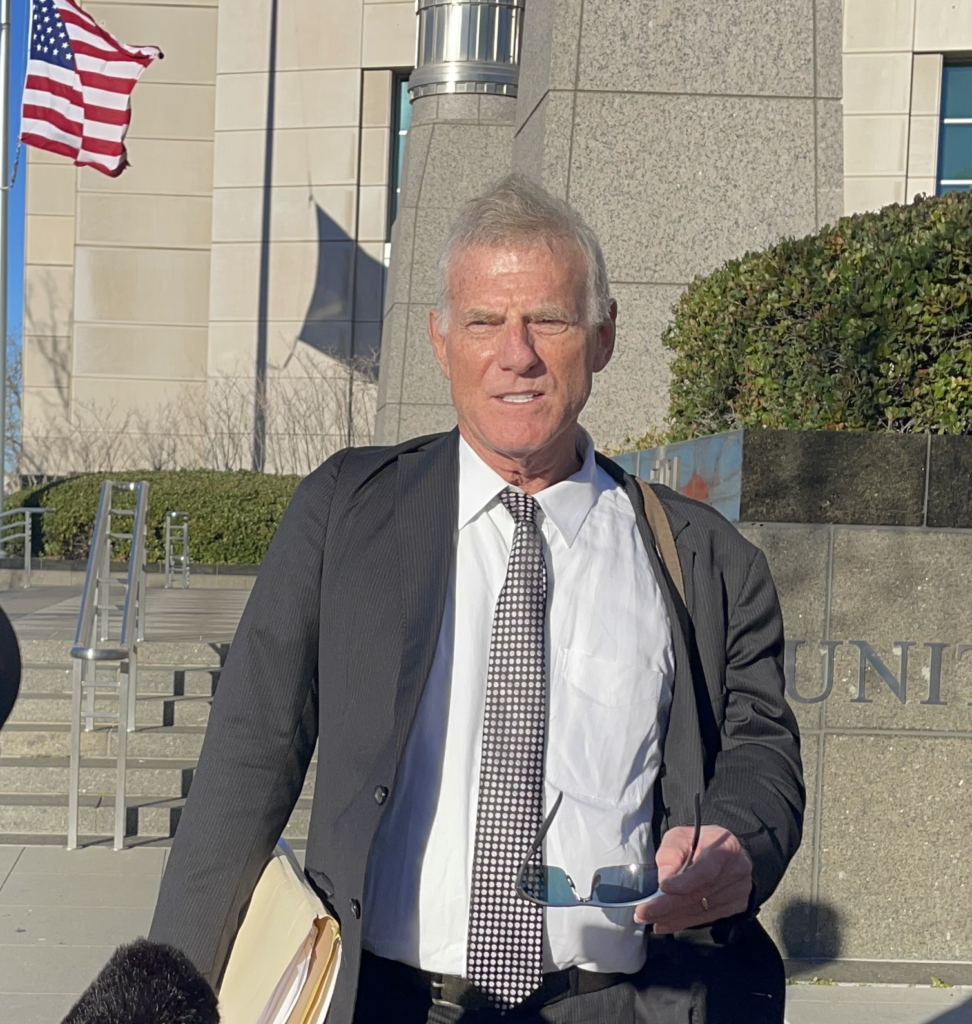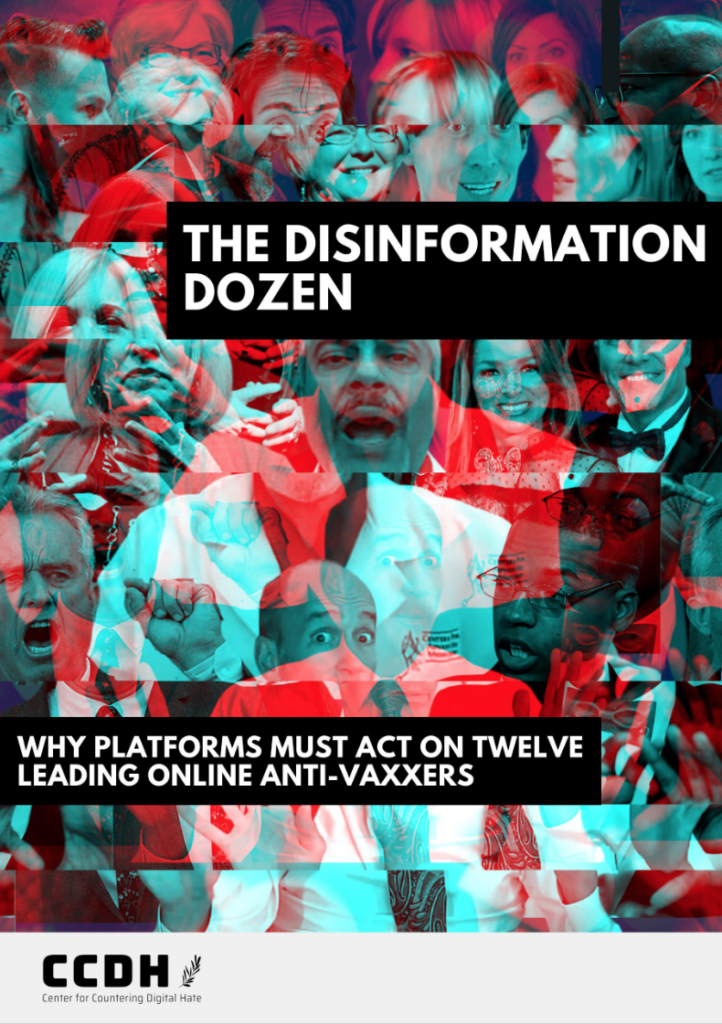
Advocates for medical freedom of speech won a significant, if limited, victory in late January when Senior US District Judge William Shubb issued a preliminary injunction that hinders the implementation of AB 2098—a new California law aimed at stopping the spread of Covid-19 “misinformation” and “disinformation.”
The law, which passed the California legislature last summer and was signed by Gov. Gavin Newsom in September, deputizes the state’s medical and osteopathic boards to take disciplinary action—including revocation of licenses—against MDs and DOs who spread what the bill defines as Covid-related mis- or disinformation.
AB 2098 designates dissemination of misinformation or disinformation related to Covid as “unprofessional conduct,” and underscores prior statutes that empower the state’s boards to “take action against any licensed physician and surgeon who is charged with unprofessional conduct.”
The new law is clearly intended to target doctors who question or criticize federal and state vaccine policies. The text states: “The safety and efficacy of COVID-19 vaccines have been confirmed through evaluation by the federal Food and Drug Administration (FDA),” and that “The spread of misinformation and disinformation about COVID-19 vaccines has weakened public confidence and placed lives at serious risk.”
On one level the fight over AB 2098 is a local issue. But it has implications far beyond California and far beyond Covid, especially given the agenda-setting role of the FSMB, and the fact that other states are considering similar laws
But it is based on a very broad definition of misinformation that could be interpreted to include any modality that contradicts “scientific consensus” or falls outside current “standards of care.”
Consequently, AB 2098 has implications far beyond California, and far beyond Covid.
Beyond CA & Covid
Critics of the bill, which had unconditional support from the American Medical Association and the California Medical Association, view it as a “gag” law, part of a more general movement to squelch dialog about medical alternatives.
Other states including Colorado, Washington, and New Mexico, are considering bills similar in intention and design. So far, none have progressed as far as California’s, which passed the state’s senate by 32-8, and the state assembly by 56-20.

Many therapies, products, and diagnostic methods used routinely by holistic and functional medicine physicians are outside the relatively narrow scope of conventional medical consensus. If AB 2098 or similar statutes in other states are to be enforced, then physicians who discuss such things with patients could potentially run afoul of their state boards and be subject to disciplinary action.
Physicians in California need to be very careful about what they say, and what they post online pertaining to Covid, vaccines, off-label uses of prescription drugs, use of supplements, and to other hot-button regulatory issues.
Rick Jaffe, Esq
Even something relatively simple and benign as a vitamin D recommendation for immune support could potentially be construed as “misinformation” under the standards set by AB 2098.
“Consensus” Can Change
“The most obvious problem with AB 2098 is the bill’s assumption that a term like “scientific consensus” is a specific enough guideline for tracking and punishing misinformation by medical professionals. This is a particular problem for topics relating to Covid-19; there may be consensus in a rough sense, but the finer details often remain contentious,” writes Zach Caverley, PA, a physician assistant specializing in cardiology.
In a well-reasoned article in City Journal, a leading publication on urban planning and policy, Caverley notes that, “Scientific “consensus” is an ever-shifting designation,” one that can change suddenly.
“A scientific consensus can be overturned abruptly by new evidence of better quality. A daily aspirin was a mainstay of heart-attack prevention for decades, until an update by the US Preventive Service Task Force advised that the overall benefit of this practice was negligible. The USPSTF also updated the age guidelines for breast-cancer screening—a move that professional societies hotly contested even after the printing of the final recommendations in 2016.”
AB 2098 is based on a broad definition of misinformation that could be interpreted to include any modality that contradicts “scientific consensus” or falls outside current “standards of care.” Many therapies used routinely in holistic and functional medicine are outside the narrow scope of conventional medical consensus.
Would the medical boards responsible for enforcing consensus and punishing misinformation under a law like AB 2098 be willing and able to keep up with the quick changes in scientific opinion? Should physicians who are early adopters of a viewpoint that later becomes “consensus” be punished for their forward thinking?
Critics of AB 2098 contend that the answer to both questions is clearly “No”.
US District Judge William Shubb, presiding over the Eastern District of California, was amenable to this line of reasoning.

“The provision is unconstitutionally vague,” Judge Shubb stated when issuing a preliminary injunction to AB 2098 in January. Shubb’s move will prevent the state from moving forward with disciplinary action against several California physicians designated under the law as spreaders of misinformation.
“Because Covid-19 is such a new and evolving area of scientific study, it may be hard to determine which scientific conclusions are ‘false’ at a given point in time.”
Shubb issued the injunction in response to two lawsuits brought by physicians, challenging AB 2098 on constitutional grounds.
Constitutional Challenges
In one case (Høeg, et al. v. Newsom, et al.),five licensed California physicians, with the support of The New Civil Liberties Alliance—a non-profit group that views “the administrative state” as a major threat to constitutional freedoms—sued Gov. Newsom and representatives of California’s medical boards, contending that AB 2098 violates their First Amendment rights to free speech, and their Fourteenth Amendment rights to due process under the law.
In a separate lawsuit (Hoang v Bonta), osteopath Letrinh Hoang, DO—along with two prominent vaccine-critical organizations (Physicians for Informed Consent (PIC) and Robert Kennedy Jr’s Children’s Health Defense (CHD)–sued the state attorney general, Rob Bonta, and Osteopathic Medical Board head Erika Calderon, on First and Fifth Amendment grounds.

“The Board has no right to declare information false just because it is against the scientific consensus and the ‘standard of care,’” states the Hoang complaint.
The suit also argued that patients have a constitutional right to hear information from physicians even if it is outside consensus viewpoints, and that physicians also have a constitutional right to recommend or prescribe off-label uses of various medications, so long as they duly inform patients about the FDA status of the treatments and the fact that the recommendations are outside consensus opinions.
In issuing the preliminary injunction, Judge Shubb affirmed that the plaintiffs in the Hoang and Høeg cases have the standing to bring a legal challenge against AB 2098. The injunction stops the state—at least temporarily—from taking further disciplinary action against the doctors named in the suit, as well as physician members of the two organizations named as plaintiffs.
Protracted Battle Ahead
Rick Jaffe, Esq, the attorney who represented Dr. Hoang, and who has argued other high-profile medical freedom cases, considers Shubb’s injunction to be a significant victory. But he says the legal battle over AB 2098 is likely to continue.

“I expect the AG’s office to appeal because Judge (Fred) Slaughter in the Central District…denied a preliminary injunction on the same statute,” Jaffe notes.
He added that he expects that the state’s medical boards will seek out “some workarounds…to undercut the impact of Judge Shubb’s opinion.”
In a special webinar on the AB 2098 situation, sponsored by Holistic Primary Care and the United Natural Products Alliance, Jaffe said he believes he was able to prevail in obtaining an injunction owing to an expert declaration by cardiologist Sanjay Verma, MD.
Verma, a spokesman for Physicians for Informed Consent, one of the plaintiffs in the Hoang case, provided a 40-page document chronicling the numerous and often sudden changes in scientific consensus across many areas of medicine over the decades. This helped convince Shubb that “contemporary scientific consensus” shouldn’t be the primary measure for defining “misinformation,” especially in a rapidly morphing situation like the Covid pandemic.
The Hoang and Høeg suits had the support of the American Civil Liberties Union, among other free speech groups. Two additional lawsuits challenging AB 2098 are currently pending before the Ninth Circuit Court of Appeals.
Should physicians who are early adopters of a viewpoint that later becomes “consensus” be punished for their forward thinking?
It remains to be seen whether Gov. Newsom or the California Attorney General will push for implementation of this controversial and politically-charged law.

Newsom has made few public comments about AB 2098, though in his official signing statement last fall, he said he is “concerned about the chilling effect other potential laws may have on physicians and surgeons who need to be able to effectively talk to their patients about the risks and benefits of treatments.”
Despite those concerns, he signed AB 2098 because he views it as “narrowly tailored to apply only to those egregious instances in which a licensee is acting with malicious intent or clearly deviating from the required standard of care while interacting directly with a patient.”
Clearly, many people disagree with Newsom’s assessment that this law is “narrowly tailored.”
A National Agenda
The language of AB 2098 drew heavily from a July 2021 public statement from the Federation of State Medical Boards (FSMB) which posits that:
“Due to their specialized knowledge and training, licensed physicians possess a high degree of public trust and therefore have a powerful platform in society, whether they recognize it or not. They also have an ethical and professional responsibility to practice medicine in the best interests of their patients and must share information that is factual, scientifically grounded and consensus-driven for the betterment of public health. Spreading inaccurate COVID-19 vaccine information contradicts that responsibility, threatens to further erode public trust in the medical profession and puts all patients at risk.”
FSMB is a national oversight organization representing 71 state-level medical and osteopathic boards. It is a co-sponsor of the US Medical Licensing Examination.
California assembly member Evan Low, the author of AB 2098, who represents the Silicon Valley region, echoed FSMB’s words, nearly verbatim, in a public statement in support of the bill.

Further, in the way it equates mis- and disinformation with professional misconduct, AB 2098 has much in common with The Disinformation Dozen, a 2021 report issued by the UK-based Center for Countering Digital Hate. This document contends that 12 prominent online influencers—including several vaccine-critical physicians—are responsible for the majority of all anti-vax content on social media.
The report conflates Covid misinformation with online hate-mongering and promotion of anti-science views, and served as the basis for a federal government attempt to coerce Facebook to block the accounts of those named in the report.
A Measure of Protection
According to Mr. Jaffe, Judge Shubb’s injunction provides a measure of protection—at least temporarily–for the physicians named in the Hoang and Høeg cases, as well as for physician members of PIC and CHD, the organizations named in the Hoang case.
In general, though, he stressed that physicians in California need to be very careful about what they say, and what they post online pertaining to Covid, vaccines, off-label uses of prescription drugs, use of supplements, and to other hot-button regulatory issues.
Nurses, naturopaths, chiropractors, practitioners of oriental medicine, and other practitioner groups have a relative degree of safety—at least for now—because they are not under the jurisdiction of AB 2098. The law is specific to MDs and DOs licensed in California.
On one level the fight over AB 2098 is a local issue. But it has significant national implications, especially given the agenda-setting role of the FSMB, and the fact that other states are considering similar laws. Holistic Primary Care will be following these issues closely in the months to come.
END







